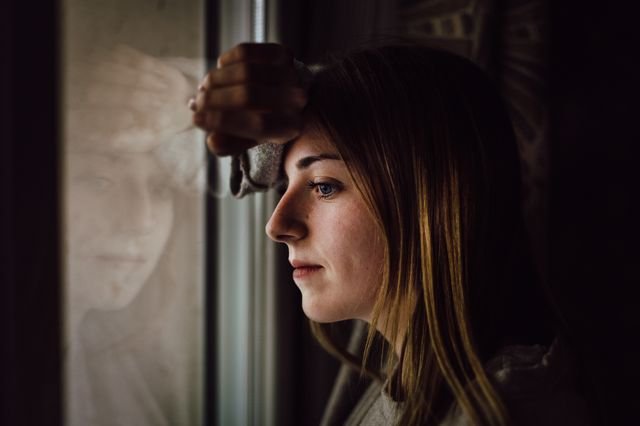When I say the word ‘depression,’ most likely an image comes to mind. You picture someone with drooping shoulders and a sad look on their face. Perhaps they are looking down and have very little interaction with others. If they do interact, their language is very negative.
The truth is, at some point, you or someone you love may exhibit any of those behaviors and not be depressed. It is also true that you or your loved ones may struggle with depression and not exhibit any of these behaviors. Depression is not always easy to spot, in you or others, because it can often be hidden.
Why do people try to hide their depression?
Sometimes it is easier to hide or avoid issues than to deal with them. The thoughts and feelings of depression are not enjoyable, so it makes sense to push them away. You tell yourself you are just going through a rough time, and it will go away.
People will hide their depression because they are scared. You are really sure what’s happening to you, and you don’t want others to know what going on with you. You may also be worried about what will happen if the depression gets worse. Will I lose my job and my family and my reasons for living?
Embarrassment may be another reason people hide their depression. Depression is one of the most common mental health issues in our country today, and yet, it can still carry a stigma. It can be seen as a weakness or a failure. It can be seen as a lack of moral character.
So what are some of the ways that people may try to hide their depression?
1. You may overcompensate.
Most people do this by being more outgoing than usual. Studies show that people trying to hide their depression can force themselves to be more outgoing and offer fake smiles. You do this because you are trying to keep you issues under cover; you want others to think you are fine.
2. You notice issues with food.
Changes in appetite are common with depression. You may eat too much or eat too little. These changes in diet may be because of the depression or an attempt to deal with the depression. Food can be an emotional trigger to make yourself feel better or worse. So if you notice diet changes in yourself, or a loved one, think about why it is happening.
3. You notice angry outbursts.
Because of the common picture of depression described above, you may not associate anger with depression. In fact, irritability is one of the diagnostic criteria for major depression. Occasional outbursts of anger over a difficult situation are normal for everyone. However, if you notice the anger is more frequent or seems to be out of proportion to the situation, you or your loved one may be suffering from depression.
4. You notice changes in sleep patterns.
Sleep patterns that change for no reason can be a sign of a deeper issue. You may sleep too much or too little. You may notice that your loved one complains about not getting enough sleep, yet they refuse to go to bed. Look deeper into these sleep issues. Ask: Why are you having trouble falling asleep or staying asleep? Why are you staying in bed so long? Insomnia is one of the most common symptoms of depression.
5. You notice addictive behavior.
Addiction and depression are often linked together. This addiction can come in many forms, including food, drugs, alcohol, or gambling. All of these behaviors can be a way to mask or self-medicate the thoughts and feelings of depression. If addictive behavior has not been there before and starts to occur, wonder what is happening. Even if these behaviors have been there for some time, consider that depression may be a reason for them.
6. You notice an insanely busy schedule.
People try to hide their feelings by filling up their days with work, family, and volunteer activities. Again, this is another way to not deal with the thoughts and emotions that are part of the depression.
7. You notice a struggle with thinking clearly.
People who suffer from depression can make bad decisions that seem out of character. You may struggle with making any decision. Or you may have difficulty focusing on simple tasks. People with depression may often seem lost in their thoughts.
Again, all of us may exhibit some of these behaviors in our lives. But if they haven’t been there and start to show up or if they start to show up more often, it may be important to ask if they are signs of a hidden depression. For more information about depression, visit my depression treatment specialty page.



